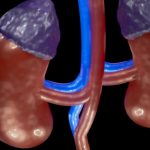By David Blyweiss, M.D., Advanced Natural Wellness
We often hear about the negative health consequences of too much sodium in our diets.
It raises blood pressure, contributes to plaque formation in the arteries and raises your risk of heart attack or stroke. It is a risk factor for type 2 diabetes, can trigger kidney stones, aggravates joints and creates an inflammatory environment in the body.
It’s just not good for you.
The problem is, most of the salt you consume doesn’t come from your salt shaker. It comes from processed, packaged and restaurant foods. So unless you’re an avid reader of labels, it’s really easy to surpass the recommended limit of 1,500 mg – 2,300 mg of sodium daily.
But sodium has a great equalizer. And if more people knew about it, it could help them avoid a lot of the health issues associated with a salty diet.
Potassium: The Great Sodium Equalizer
Nearly 100% of the U.S. population exceeds the ideal sodium limit of 1,500 mg daily.
At the same time, about 98% of U.S. adults aren’t getting enough potassium in their diets. That means only two out of every 100 adults meet their daily potassium needs of 4,700 mg or more each day.
This is a travesty, because potassium can counteract much of the damage caused by a high sodium intake.
First and foremost, potassium has several important roles in your cardiovascular health.
Potassium works together with calcium and magnesium to “charge up” the electrical tissue in your body. Without that “charge”, your heart muscle wouldn’t be able to contract or hold a steady beat.
It helps lower blood pressure and keep it at normal levels, even in people who eat salty diets. Plus, potassium reduces arterial stiffness and cuts down on the build-up of plaque in the arteries.
This is all great news for your cardiovascular outcomes.
In fact, a 2022 study led by researchers at the Harvard T.H. Chan School of Public Health found that for every 1,000 mg increase in potassium intake, the risk of heart disease decreased by 18%. (On the other hand, every 1,000 mg increase in sodium raised the risk by 18%.)
Another analysis showed that higher potassium intake was associated with a 24% lower chance of stroke.
But the benefits don’t stop there.
More potassium in the diet is anti-inflammatory and can help relieve inflammatory joint pain. It also plays a role in the health of your bones, and regulates insulin response and blood sugar levels.
Plus, higher potassium intake reduces the amount of calcium excretion in urine which, in turn, decreases the risk of developing kidney stones. It’s especially effective against kidney stones when combined with a higher calcium intake.
How to Get More Potassium
When you purchase canned and packaged foods, I urge you to read labels and look at sodium and potassium content per serving, and how many servings the package contains.
Better yet, try sticking with more of a natural, plant-based diet. You can get plenty of potassium (and very little sodium) by eating more fresh foods cooked at home.
Some great sources of potassium include beans, lentils, avocado, sweet potatoes, acorn and winter squash, beet greens, spinach, Swiss chard and artichokes. Kiwi, mangoes, guava, prunes and bananas are also good choices.
I don’t recommend supplementing with potassium unless you are advised to do so by your physician. High blood levels of potassium can be dangerous for people with chronic kidney disease, poorly controlled diabetes or who are taking certain medications.
So make sure to get tested and only take a supplement if it is recommended or prescribed by your physician.
SOURCES:
Poole-Wilson PA. Potassium and the heart. Clin Endocrinol Metab. 1984 Jul;13(2):249-68.
Filippini T, Naska A, Kasdagli MI, Torres D, Lopes C, Carvalho C, Moreira P, Malavolti M, Orsini N, Whelton PK, Vinceti M. Potassium Intake and Blood Pressure: A Dose-Response Meta-Analysis of Randomized Controlled Trials. J Am Heart Assoc. 2020 Jun 16;9(12):e015719.
Sun Y, Byon CH, Yang Y, Bradley WE, Dell’Italia LJ, Sanders PW, Agarwal A, Wu H, Chen Y. Dietary potassium regulates vascular calcification and arterial stiffness. JCI Insight. 2017 Oct 5;2(19):e94920.
Ma Y, He FJ, Sun Q, Yuan C, Kieneker LM, Curhan GC, MacGregor GA, Bakker SJL, Campbell NRC, Wang M, Rimm EB, Manson JE, Willett WC, Hofman A, Gansevoort RT, Cook NR, Hu FB. 24-Hour Urinary Sodium and Potassium Excretion and Cardiovascular Risk. N Engl J Med. 2022 Jan 20;386(3):252-263.
Aburto NJ, Hanson S, Gutierrez H, Hooper L, Elliott P, Cappuccio FP. Effect of increased potassium intake on cardiovascular risk factors and disease: systematic review and meta-analyses. BMJ. 2013 Apr 3;346:f1378.
Kianifard T, Chopra A. A therapeutic role for potassium (K) to reduce pain and complications related to the cardiovascular system and bone in rheumatoid arthritis (RA): A clinical research perspective. Rheumatology Research. 2018. 3(1), 1-12.
Moseley KF, Weaver CM, Appel L, Sebastian A, Sellmeyer DE. Potassium citrate supplementation results in sustained improvement in calcium balance in older men and women. J Bone Miner Res. 2013 Mar;28(3):497-504.
Barcelo P, Wuhl O, Servitge E, Rousaud A, Pak CY. Randomized double-blind study of potassium citrate in idiopathic hypocitraturic calcium nephrolithiasis. J Urol. 1993 Dec;150(6):1761-4.
Chewcharat A, Thongprayoon C, Vaughan LE, Mehta RA, Schulte PJ, O’Connor HM, Lieske JC, Taylor EN, Rule AD. Dietary Risk Factors for Incident and Recurrent Symptomatic Kidney Stones. Mayo Clin Proc. 2022 Aug;97(8):1437-1448. He FJ, MacGregor GA. Beneficial effects of potassium on human health. Physiol Plant. 2008 Aug;133(4):725-35.






